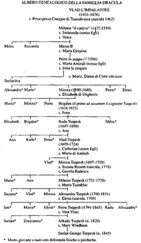1 ...7 8 9 11 12 13 ...28 Baroncelli’s gaze followed the cup. A shaft of sunlight caught the gold and reflected blindingly off the metal.
Again, the priest chanted, in a wavering tenor that sounded vaguely accusatory.
Offerimus tibi Domine …
Baroncelli turned to look at the younger Medici next to him. Giuliano’s expression was grave, his eyes closed. His right hand was clenched in a fist; his left hand clasped it, and both were pressed tightly to his lips. His head was bowed so he might have been praying. He looked like a man preparing to greet Death.
This is foolish, Baroncelli thought. He had no personal enmity toward this man; indeed, he liked Giuliano, who had never asked to be born a Medici. His quarrel with him was purely political, and certainly not great enough to warrant what he was about to do.
Francesco de’ Pazzi jabbed Baroncelli fiercely in the ribs, relating the unspoken message perfectly: The signal has been given! The signal has been given!
Baroncelli released a reluctant, inaudible sigh and drew his great knife from its hilt. Hefting it overhead, he remembered all the dozens of phrases he had rehearsed for this instant; none of them came to his lips, and what he finally shouted sounded ridiculous to his own ears.
‘Here, traitor!’
The church bells had just begun clanging when Giuliano looked up. At the sight of the knife, his eyes widened with mild surprise.
Baroncelli did not hesitate. He brought the blade down.
VI Contents Cover Title Page JEANNE KALOGRIDIS Painting Mona Lisa Prologue: Lisa June 1490 I II PART I April 26, 1478 III IV V VI VII VIII December 28, 1478 IX X PART II LISA XI XII XIII XIV XV XVI XVII XVIII XIX XX XXI XXII XXIII XXIV XXV XXVI XXVII XXVIII XXIX XXX XXXI XXXII XXXIII XXXIV XXXV XXXVI XXXVII XXXVIII XXXIX XL XLI XLII XLIII XLIV XLV XLVI XLVII XLVIII XLIX L LI LII LIII LIV LV LVI LVII LVIII LIX LX LXI LXII LXIII LXIV LXV LXVI LXVII LXVIII LXIX LXX Epilogue: Lisa July 1498 LXXI Acknowledgements By the same author Copyright About the Publisher
A moment earlier, Lorenzo de’ Medici had been engaged in courteous but muted conversation with Cardinal Raffaele Riario. Although the priest was finishing up his sermon, the wealthy power-brokers of Florence thought nothing of discussing matters of pleasure or business – sotto voce – during Mass. The social opportunity was simply too great to ignore, and the priests had long ago become inured to it.
A scrawny lad, Riario looked younger than his seventeen years, and though he was currently a student of law at the University of Pisa, his enrolment there was clearly due more to his kinship with Pope Sixtus than any native intelligence.
Nephew, Sixtus called him. It was the euphemism by which popes and cardinals sometimes referred to their bastard children. The Pope was an extremely intelligent man, but obviously had got this homely, witless boy on a woman with charms other than beauty or brains.
Even so, Lorenzo was obliged to show the young cardinal a fine time while he was visiting Florence. Riario had specifically asked to meet with the Medici brothers and to be given a tour of their property and collection of art; Lorenzo could not refuse. This was the Pope’s so-called nephew – and though Lorenzo had endured public humiliation at Sixtus’ hands – even been forced to hold his tongue while the Medici were replaced by the Pazzi as the papal bankers – perhaps this was an overture. Perhaps Sixtus was trying to make amends, and this gangly young creature in scarlet robes was his emissary.
Lorenzo was eager to return to the family palace to ascertain whether this was indeed the case; the cardinal’s visit would irritate him greatly if Sixtus was simply taking brazen advantage of Lorenzo’s generosity. It would be yet another insult.
But in case it was not, Lorenzo had called for a magnificent feast to be served after Mass in honour of the young Cardinal. And if it happened that young Raffaele had come only out of a desire to enjoy the Medici art, he could at least report to his uncle that Lorenzo had treated him lavishly and well. It could serve as a diplomatic opening, one that Lorenzo would use to full advantage, for he was determined to reclaim the papal coffers from the clutches of the Pazzi bank.
And so Lorenzo practised his most gracious behaviour, even though Francesco Salviati, Archbishop of Pisa, stood smiling disingenuously on Riario’s other flank. Lorenzo had no personal quarrel with Salviati, though he had fought long and bitterly against his appointment as archbishop. So close to Florence, Pisa deserved an archbishop of Medici blood – and Salviati was related to the Pazzi, who already were gaining too much favour with the Pope. While the Medici and Pazzi publicly embraced each other as friends, in the arena of business and politics, there were no fiercer adversaries. Lorenzo had written an impassioned letter to Sixtus, explaining why the appointment of a Pazzi would be disastrous to papal, and Medici interests.
Sixtus not only failed to respond, he ultimately dismissed the Medici as his bankers.
Most would consider the appearance of Riario and Salviati as honoured guests a stinging blow to Medici dignity. But Lorenzo, ever the diplomat, welcomed them. And he insisted that his dear friend and the senior manager of the Medici Bank, Francesco Nori, show not the slightest sign of offence. Nori, who stood beside him now in silent support, was desperately protective of Lorenzo. When the news came from Rome that the Pazzi had been appointed the papal bankers, and the Medici were ousted, Nori had raged incessantly. Lorenzo had been obliged to calm his employee, though he had held his own anger in check, and spoke little of the affair. He could not afford the energy; he was already too busy scheming how he might win Sixtus back.
He had exchanged pleasantries with the young Cardinal throughout the service, and from a distance, smiled a greeting to the Pazzi, who were in full attendance. Most of them had gathered at the other side of the cathedral, except for Guglielmo de’ Pazzi, who stuck to the Archbishop’s side like a burr. Lorenzo honestly liked Guglielmo; he had known him since he, Lorenzo, was a boy of sixteen, when Guglielmo had escorted him to Naples to meet Crown Prince Federigo. The older man had treated him like a son then, and Lorenzo had never forgotten. In time, Guglielmo married Lorenzo’s older sister, Bianca, strengthening his position as a friend to the Medici.
At the start of the sermon, the boy Cardinal gave a strange, sickly smile and whispered, ‘Your brother … where is your brother? I thought surely he would come to Mass. I had so hoped to meet him.’
The question took Lorenzo by surprise. Although Giuliano had made polite noises about coming to the Mass in order to meet Cardinal Riario, Lorenzo felt certain no one, least of all Giuliano, had taken the promise seriously. The most famous womanizer in Florence, Giuliano was notorious for his failure to appear at formal or diplomatic functions – unless Lorenzo insisted vehemently upon it. (Certainly he had not done so here.) Giuliano had already proclaimed himself unable to attend the luncheon.
He had been thoroughly taken aback the previous day when Giuliano had announced his intention to run off to Rome with a married woman. Up to that point, Giuliano had never taken his lovers very seriously; he had never spouted such foolishness before and certainly had never spoken of marriage. It had always been understood that, when the time came, Lorenzo would choose his bride and his brother would submit.
But Giuliano had been adamant about getting the woman an annulment – an achievement which, if Cardinal Riario had not come as a Papal overture, was well beyond Lorenzo’s grasp.
Читать дальше












